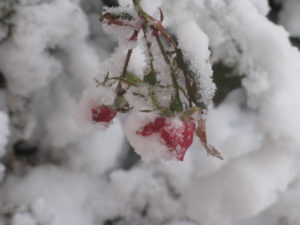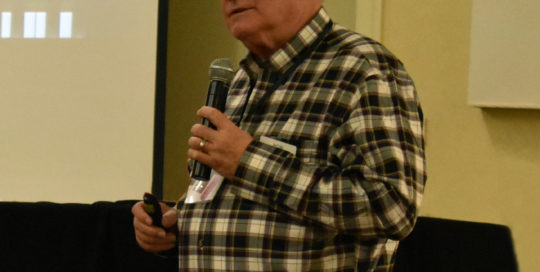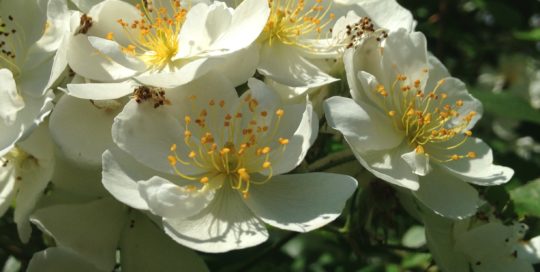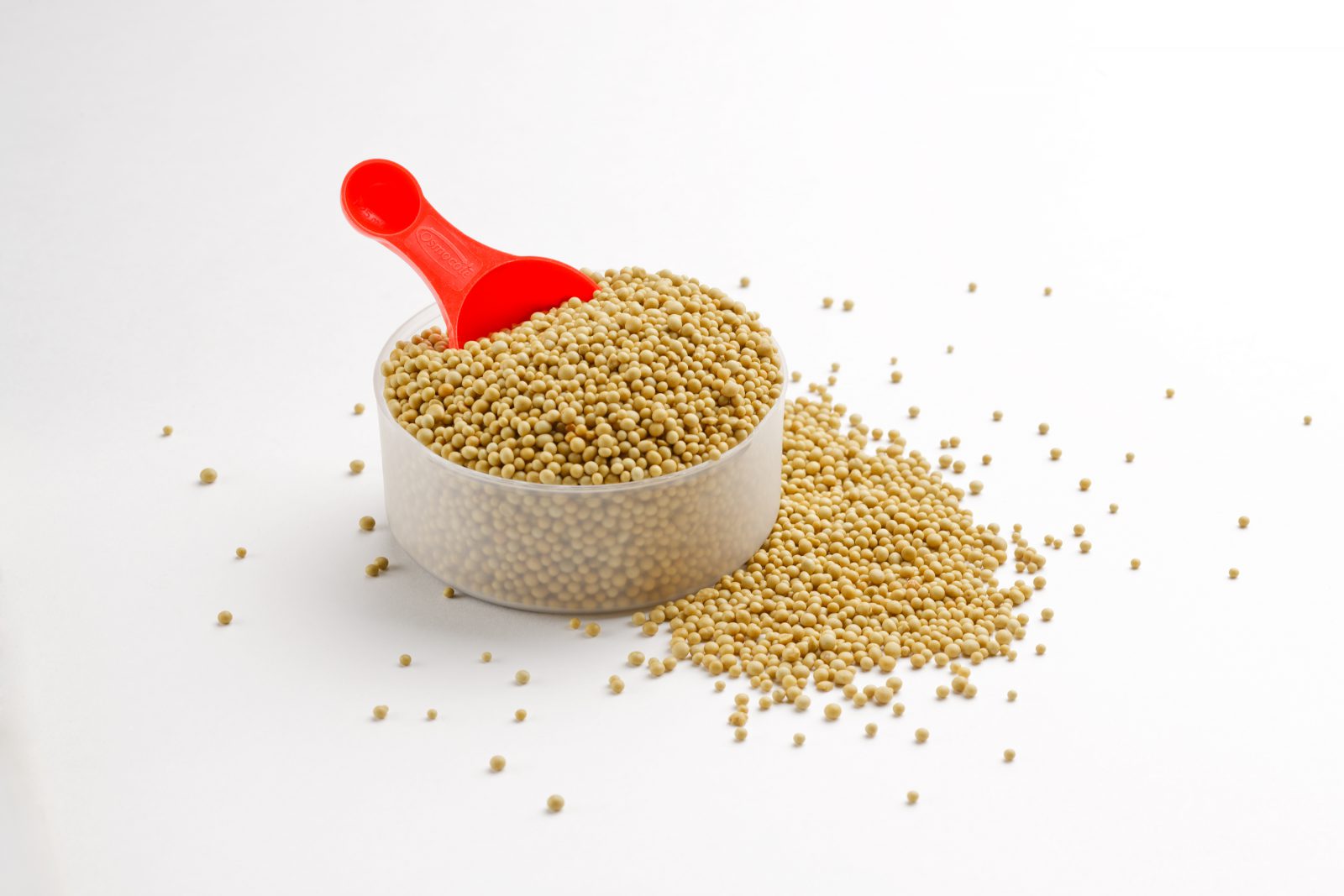February Remembrances and a Time for New Roses
Views: 517

Remembering Frederic & Helen
The name on the writing implement for today’s blog is “Helen Towle.” It is foil-stamped using Frederic Goudy’s Copperplate Gothic typeface. At one time the pen was a small personalized work of art that Helen used. Now, the gold foil is much faded. The pen has many scratches and the gold plating on the cap has worn through from the many years of use. Frederic Goudy and Helen Towle – an unlikely combination and a couple of names from the 19th and 20th centuries being brought from the depths of obscurity to today’s blog.
Who were Frederic & Helen?
Many of us may know Frederic Goudy through his fabulous type designs from the late 19th/early 20th century. He was my father’s favorite type designer, and I will admit to quite an affinity towards him as well. Fred’s typefaces are timeless, and have been the foundation for many printed items through the years. We often use his designs without any thought of their origin.
They will continue to be used for many decades to come, but who was (or who is) Helen Towle? Was she a highly-prolific writer and author? Or, was she a homemaker with children and grandchildren (and great grandchildren)? Who knows? Maybe some of them may even be reading this blog right now? Maybe, Helen might have been a gardener and prolific author, who wrote stories about her garden and the fabulous roses and other interesting plants growing in it? The world may never know, and who she was may have been lost to history. But, I thought I could honour her today by using the pen that bears her name.
A pen from Helen
Helen’s pen is a good pen, but not a spectacular pen. It’s something that would have been bought at the local Five and Dime. Something bought to be used. Something utilitarian from a bygone era. Helen’s pen puts the ink down on my writing pad through its “wing flow” tip that lays down twice the amount of ink as most of my other fountain pens. The words are very dense, take a long time to dry, and are nearly impossible to erase.
Wintertime is for choosing new roses
As I wait for the ink to dry, I look out at my garden, and think about what I should be doing during the winter months. Winter is the time of year that is often used by many rosarians to buy new roses for their gardens and replace the non-performing and dead ones with new and exciting ones.
What we chose, will have a major impact on how our gardens will look for the next several years. Our choices could be the difference between a rose that is only around a few short months and succumb to the summer heat and/or harsh winters. Or, they could be some that are timeless (like Frederic Goudy’s typefaces), that are used to lay a foundation by which our gardens can be built upon for decades of pleasure? Or, they may be the old reliable roses that flourish year after year, not unlike Helen Towle’s personalized pen that continues to be the creative outlet that it is all these years later?
Choosing the right rose for you
I am a firm believer in choosing roses that suit one’s own personal growing level. I don’t try to extend my growing capabilities beyond where I want them to be. Roses are not inexpensive, and when I chose the one(s) I want to buy, I want to make sure that I buy roses with the intent that they will be in my garden for a very long time.
Selecting from easy to grow roses, intermediate roses, and advanced roses
I divide roses into three different types – easy to grow, intermediate care, and advanced care. Easy to grow roses are roses that generally can be planted and with minimal care do well. Intermediate care roses are roses that need a little extra work to have them perform to their best (like periodic spraying with pesticides, covering for the winter, etc.). Advanced care roses are roses that are usually chemical dependent that need constant weekly spraying, heavy doses of fertilizers, and need heavy protection from the winter. Most of the roses that I buy are either easy to grow roses or intermediate care roses.
Selecting easy to grow roses
When I buy easy to grow roses, I generally look to old garden roses, polyanthas, and shrub roses. I find that these types of roses are generally more disease-resistant, and can do well without constant spraying. And, when these roses do get diseases, they are usually strong enough to grow through them, and not let the diseases kill them. Whenever I can, I try to buy sustainable roses and roses that have been deemed as Earth Kind® roses. I have an extremely busy schedule and work long hours, and one of the things that I don’t always have enough time for is weekly spraying and the coddling of roses.
I also am able to test my seedlings to their limits with a no-spray (or low spray) regimen. By exposing my seedlings to these conditions, I usually come up with pretty hardy and healthy roses. I know that a lot of people feel the same way as I do, and have either partially- or fully-sustainable rose gardens. And, in recent years there have been many laws that have been being enacted that ban the very pesticides that are used on roses. Easy to grow roses are usually the best to grow with these restrictions.
Intermediate care roses
The intermediate care roses that I buy, are generally the ones that do need spraying every once in a while and need some type of winter protection. They are usually the healthier floribundas, large flower climbers, and healthier miniature roses. Intermediate roses almost always have a secondary use for me, and that secondary use is usually the genetics.
Advanced care roses
When it comes to advanced care roses, I generally do not buy them. I do not have the extra time needed to spray them weekly, and when I do buy them, I buy them for the genetics. I do expect to lose some of these roses, and I have this loss as part of my overall plan. While I am not a militant environmentalist, I do believe that we can reduce the amount of chemicals that we release to the environment by not bombarding our roses and other ornamental plants with chemicals on a routine basis.
The chemicals that we spray can enter the environment unchecked this way. The high maintenance roses in my area include hybrid teas, grandifloras, minifloras, and exhibition-style miniature roses. While all of these roses are not high maintenance, more often than not, they are. These roses are usually bred for their beauty and high centers, as well as their performance in rose shows, but do not do well without constant spraying for diseases and pests.
Consult with your your local ARS Consulting Rosarians
If you are in doubt as to what level the rose is that you are thinking of buying, I recommend contacting ARS Consulting Rosarians in your area. They are a great resource and can steer you towards roses that suit your abilities and do well in your area. I know that I use them quite extensively whenever I look at new roses to buy.
How will I use my new roses?
After I figure out what level of rose I want, I then try to figure out how I want to use it. Will it be used for only entering in the shows? Or, will it be a landscape rose that fills a need for color in my garden? Or, do I want it for the genetics to use in my hybridizing program? I research the varieties that catch my eye through as many resources as I can.
I try to determine how hard the rose is to grow. Does it have disease issues? What do other local Consulting Rosarians know about these roses through their own experience and/or research? What do contributors to the HelpMeFind website say about their experiences growing the rose? Are they growing the rose in my zone (zone 5B)? Are there others who live in colder zones growing the rose? Every bit of information I can have about the type of rose I am looking at, will reward me many times over. And, if in doubt, I pass on the rose. There’s always another rose just around the corner. You should do the same.
Where to buy?
After I decide how I want to use the rose, I look at ways to buy the roses that I want. Are they available from my local nursery? Or, will I have to look online to find them? When it comes to deciding which nursery I buy from, I often ask myself why I would buy from one nursery over another? And, what are the long-term ramifications if I buy/do not buy from a particular nursery? All nurseries in operation today, have a symbiotic relationship with us (the buying public). We both need each other and need to support each other.
Local nurseries
On one hand, we need local nurseries and garden-related businesses in our community to supply us with roses, perennials, and other garden-related items. We need to have these supplies readily available and waiting for us should we need these supplies at any given time of the year. These same nurseries hire local people to work there and give back to our communities in so many ways. It’s hard to measure their significance. However, local nurseries’ stock is limited to what is available to them by their suppliers, and they generally offer the same (or similar) roses as other nurseries.
Large mail order and online nurseries
On the other hand, an alternative to our local nurseries are the mail order nurseries from around the world. There are many different types from large nurseries that supply thousands of roses to hundreds of people worldwide, to small boutique nurseries that cater to selling rare and unusual varieties. The large nurseries generally have a limited selection of roses, but large quantities of these roses are available. Volume sales is their business model, and diversity is not always welcome. Great deals can be had by buying roses at these nurseries in larger quantities, through package deals, and volume shipping. Having these large-volume nurseries helps to keep the supply of roses high, and the prices low. They usually have more varieties available than what can usually be found at local nurseries.
Boutique mail order and online nurseries
There are also smaller boutique nurseries that supply limited quantities of roses that are generally not available at local garden centers and high-volume online nurseries. I will also admit that I am one of those people who want something different. Something that others generally do not have, but I do. This is the independent person within me that is writing this blog with Helen Towle’s fountain pen from the 1950’s. I’m pretty sure that no one else can say that in 2021. I am also one of only a handful of people who have ever handled Helen’s pen with fresh ink in it, and probably one of two or three people who have ever used it to write anything extensive.
Something different and unique
When looking for something different, I look outside the box. I often look to these boutique online rose nurseries that do sell something different. Something out of the ordinary that not too many other nurseries have. Something that is considered “unique.” I feel as though these boutique nurseries can be some of the most important nurseries around. They supply rare and unusual varieties to those who want to grow and enjoy them. And, without these boutique nurseries, many varieties will become endangered and eventually extinct. And, through time all of our gardens will lack the diversity that is offered through roses acquired at boutique nurseries.
It’s late in the season, but never too late to research
It is getting somewhat late in the offseason to buy many roses online, as many nurseries have sold out their stock for the season. But, spring is coming next month, and the temptation is always there to buy roses at our local nurseries. Some of my best buys have come from local nurseries. It is also a good idea to continue studying roses throughout the season, and not only during the off season. Research the varieties that catch your eye, and be ready to buy the ones that will be with you for many years to come.
Good luck!
I wish you all well with your purchases. Be sure to have your new roses delivered to you for the correct planting time in your area. This varies greatly depending on which zone you live in. The best way to find out what is the best time to plant roses in your area is by contacting your local ARS Consulting Rosarians. The time we plant roses here in Southern New England is April/May.
Well, it’s time to put Helen’s pen away for it is out of ink again. Her pen will never be one of the ones that I use on a regular basis (because it constantly needs to be refilled). But, it is has been my honour to use it in her memory/honour for today’s blog, and to say a few words about one very special type designer. Invoking Frederic’s name brings forth memories of my dad, and that’s something that I will always cherish.
Epilogue
This story was originally penned last February, but was put aside when the country was shut down during the early stages of the COVID19 pandemic. There were also delays in when I started blogging, and I thought it best to publish this story during the winter and not a few days before the start of spring. The story is essentially the same as what I wrote last year (with some minor changes).
Rose society fundraisers
While not mentioned in the main text of this blog, many local societies (as well as districts) have fundraisers where roses are sold to its members. Buying roses at these fundraisers can be a great way to not only get great deals on roses that do well in your area, but also help to fund your local society as well.
Meet Andy Vanable
Andy's Recent Posts

The Rose-Growing World Loses an Icon – Bob Martin






